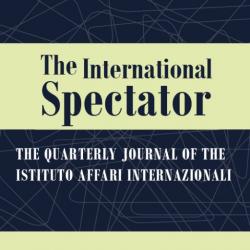Ukraine and the Debacle of Russian Soft Power

The war in Ukraine has demonstrated Russia’s incapacity to implement a foreign policy strategy without resorting to hard power means, exposing the limits in its soft power capacity to ‘attract’ and ‘persuade’. Specifically, Russian soft power in Ukraine built around the model of the ‘Russian world’ (Russkiy Mir) was unable to persuade Kyiv to align with Moscow through peaceable means. Simultaneously, EU-inspired soft power based on the idea of ‘Greater Europe’ and Ukrainian ‘Europeanness’ conceived through the normative prism of liberal-democratic values and the potential of higher levels of economic development, limited the impact of Russia’s soft power in Ukraine. Russian soft power in Ukraine was not inspired by the idea of attraction but conceived as a propagandistic means to justify expansionist policies, merging de facto with hard power. After the 2022 invasion, in the occupied regions, Moscow’s influence could only be imposed coercively as an ancillary tool of hard power through a unique combination of smart and sharp power. Overall, a comparison of the influence of Russian and EU soft power in Ukraine highlights that the latter proved to be generally more persuasive, leading Moscow to resort to military force.
Keywords: Russia; Ukraine; EU; soft power; Russkiy Mir; Greater Europe
-
Dati bibliografici
The International Spectator, Vol. 59, No. 2, June 2024, p. 37-57 -
Numero
59/2 -
ISBN/ISSN/DOI:
10.1080/03932729.2024.2316746



